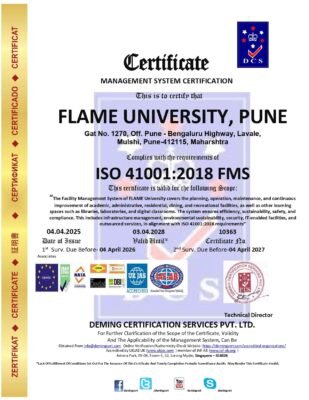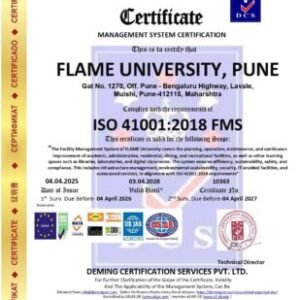ISO 29993 Learning Services Provider (LSP)
ISO 29993 is an international standard that specifies the requirements for Learning Services Outside Formal Education. The standard is highly relevant for a Learning Service Provider (LSP).
Here are the key aspects:
- Scope: It applies to all types of life-long learning, vocational training, and in-company training, whether outsourced or provided in-house. It is not aimed at traditional schools, colleges, and universities that are part of a formal education system, although it can be a useful tool for them.
- Purpose: The standard provides a generic framework for quality, professional practice, and performance for LSPs. It aims to enhance the effectiveness, efficiency, and transparency of learning services.
- Key Features of the Services: The learning services covered by ISO 29993 must have:
- Clearly defined learning goals.
- Evaluation of the services.
- Interaction with the learner.
- Applicability: It applies to any organization offering non-formal education, such as:
- Corporate training organizations.
- E-learning platforms.
- Vocational training centers.
- Coaching and mentoring services.
- Benefits for an LSP: Achieving ISO 29993 certification can help an LSP to:
- Enhance the credibility and quality of their learning services.
- Gain international recognition.
- Align various elements of their services, from advertising and needs analysis to design, assessment, and evaluation.
- Improve customer satisfaction by ensuring the services are well-structured and outcome-based.
- Provide a model for continuous improvement within the organization.
Key differences between ISO 29990 and ISO 29993
The key difference between ISO 29990 and ISO 29993 is that ISO 29990 has been withdrawn and essentially split into two new standards, one of which is ISO 29993.
Here is a breakdown of the key differences and the transition:
Summary of the Transition
ISO recognized the complexity of combining both service and management system requirements in one document (ISO 29990). To offer greater flexibility and alignment with other ISO standards, they effectively retired ISO 29990 and replaced it with a split approach:
- ISO 29993 (Service Requirements): This new standard took the section of ISO 29990 that dealt with the direct delivery and design of the learning service (what the learner experiences).
- ISO 21001 (Management System for Educational Organizations): This separate standard was created to cover the management system elements (organizational strategy, resource management, processes, etc.) previously in ISO 29990.
Therefore, an organization looking for the equivalent of the old ISO 29990 certification would typically adopt either:
- ISO 29993 (for the service quality) plus ISO 21001 (for the management system).
- ISO 29993 (for the service quality) plus ISO 9001 (if they already have a general quality management system).
Typical timeline and costs to certify to ISO 29993
The typical timeline and costs for ISO 29993 certification vary significantly based on the size and complexity of the Learning Service Provider (LSP), the existing maturity of its learning processes, and the decision to use a consultant.
⏱️ Typical Timeline for ISO 29993 Certification
The entire process, from initial gap analysis to certificate issuance, typically takes 4 to 12 months for most organizations.
💰 Typical Costs for ISO 29993 Certification
Certification costs are divided into implementation costs and external audit costs. While highly variable, a small to medium-sized LSP can expect total costs to range from $8,000 to over $30,000 for the initial 3-year certification cycle.
1. Implementation Costs (Variable)
These costs are determined by whether you use internal staff or hire an external consultant.
2. Certification Costs (Auditor Fees)
These costs are paid to the accredited Certification Body (CB) and are typically based on the number of auditor-days required, which is influenced by the number of employees, sites, and complexity of the learning services.
Key Factors Influencing Cost and Time
The final cost and timeline are heavily influenced by:
- Size of the Organization (Employee Count): A larger organization requires more auditor-days, directly increasing the certification fee.
- Existing Process Maturity: If the LSP already has documented procedures for course design, needs analysis, and evaluation, the time and cost for implementation will be significantly lower.
- Scope and Complexity: The number of different learning programs, sites, and delivery methods (e.g., online, blended, in-person) will increase the complexity and audit time.
- Use of a Consultant: Hiring a consultant increases the immediate monetary cost but often reduces the overall timeline and increases the probability of a successful audit.



Reviews
There are no reviews yet.